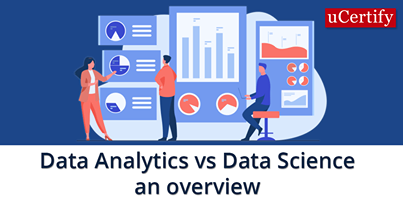
Data analysts and data scientists both work with data, the difference is in the work that they do with it. Data analysts inspect sets of data and use it to identify trends, develop charts, and create visual presentations. With the help of the results provided by Data analysts, businesses can make more strategic decisions. On the other hand, Data scientists create and formulate new processes for data modeling and production using prototypes, algorithms, predictive models, and custom analysis.
Operating Data Analytics
The job role of data analysts varies across industries, however, data analysts usually use data to understand and solve problems. Data analysts work in a wide range of fields including business, finance, advertising, operations, pricing, and international strategy analysis. Data analysts for evaluate well-defined sets of data using different tools to answer business demands. This knowledge will help find answers to the questions like why sales decreased this quarter, why a marketing campaign didn’t do well in all regions, what internal factors affecting revenue, and more.
Data analysts have skills including data mining, data modeling, R or SAS, SQL, and database management and reporting.
Data analysts usually design and maintain data systems and databases with the help of statistical tools to depict data sets. They are also responsible for preparing reports that reveal movements, patterns, and predictions based on useful results.
Operating Data Science
Data scientists measure the required or undiscovered results by asking questions, creating algorithms, and statistical models. Unlike Data analysts, Data scientists do not deal with heavy coding. Data scientists work with limitless data sets with multiple tools and build their automation systems and frameworks.
A Data scientist should have a practical and working knowledge of machine learning, software development, Hadoop, Java, data warehouse, python, object-oriented programming, and more.
Data scientists are mostly responsible for designing data modeling processes, as well as creating algorithms and predictive models. These models and algorithms help in extracting required information and solving complex problems.
Data Science or Data Analytics: which one to choose?
You can access to choose the right path for you after understanding the differences between data analytics and data science and identifying each career’s requirement with uCertify CIW Data Analyst course. There are three key factors you should consider before deciding which career path is the best-suited choice for your professional goals.
- Choosing the right education background
Though there are many similarities in the work of Data Scientists and Data analysts, you need different educational backgrounds for each.
Data analysts examine large data sets to identify trends that help businesses make important decisions. Pursuing an undergraduate degree in a science, technology, engineering, or math (STEM) major can provide the required skills to perform these tasks. Some professionals prefer to have an advanced degree in analytics or a related field. Professional experience in programming, databases, modeling, and predictive analytics is also suited for this job.
Data scientists are responsible for designing and constructing new processes for data modeling and production. In this process, they use data mining and machine learning. That’s why a master’s in data science is considered as an essential education prerequisite for professional advancement.
If you’re a student and thinking about which stream you should choose then you may find a data analytics role more attractive. Employers prefer candidates with an undergraduate degree for these positions. But if you have decided to devote yourself to an advanced degree then you would like to go for Data scientists’ roles.
- Choosing your area of interest
If you love working with numbers and statistics from or are interested in computer science and business, then these jobs are right for you.
Data analysts deal with numbers, statistics, and programming so they love these fields. A Data analyst has to work in databases to discover data points from complex sources because they work as the protector of an organization. They should also understand the work culture and nature of the industry they work in.






